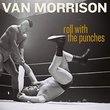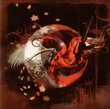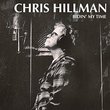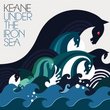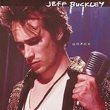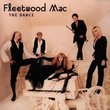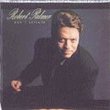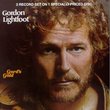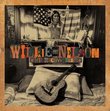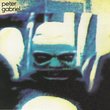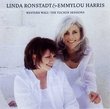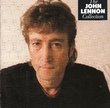| All Artists: Bruce Cockburn Title: Stealing Fire Members Wishing: 0 Total Copies: 0 Label: Sony Original Release Date: 1/1/1991 Re-Release Date: 11/12/1991 Genres: Folk, International Music, Pop, Rock Styles: Traditional Folk, Contemporary Folk, North America, Adult Contemporary, Singer-Songwriters, Adult Alternative Number of Discs: 1 SwapaCD Credits: 1 Other Editions: Stealing Fire UPCs: 074644873528, 015017131012, 074644873542, 077777131046, 5099748036520 |
Search - Bruce Cockburn :: Stealing Fire
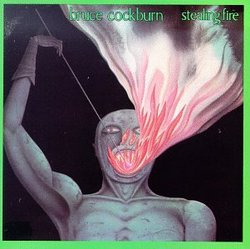 | Bruce Cockburn Stealing Fire Genres: Folk, International Music, Pop, Rock
|
Larger Image |
CD DetailsSimilar CDs
Similarly Requested CDs
|
CD ReviewsCockburn's Masterpiece Steve Vrana | Aurora, NE | 01/06/2000 (5 out of 5 stars) "Like fellow Canadian singer-songwriter Gordon Lightfoot, Bruce Cockburn (pronounced "coe-burn") began his career in a folky vein. However, while Lightfoot has never strayed far from that path, Cockburn had turned to a more rock oriented sound by 1978's Further Adventures Of. And by the release of Stealing Fire in 1984, his lyrics had become much more political.Perhaps his strongest political statement is made in the angry lyrics of "If I Had a Rocket Launcher": "Here comes the helicopter--second time today/Everybody scatters and hopes it goes away/How many kids they've murdered only God can say/If I had a rocket launcher, I'd make somebody pay."And his anger was fuelled by his travels to see first-hand the suffering inflicted by the action (or inaction) of the United States in the countries of Central America. Like a rock 'n' roll Martin Luther, Cockburn stands for those who cannot stand for themselves and provides a voice for the injustices he sees. Some critics may see his posturing as nothing more than opportunistic, left-wing political ravings, but it's difficult not to see Cockburn's sincerity. And if fifteen years earlier the Beatles announced to the world that "all you need is love," maybe Cockburn is only being realistic in that all you really need is a rocket launcher.In "Nicaragua" Cockburn laments the sorrow caused by the civil war that tore apart a country: "For every scar on a wall/There's a hole in someone's heart/Where a loved one's memory lives."Cockburn's travels also exposed him to a broader range of musical styles, and Latin elements are sprinkled throughout the tracks on this CD, including Dust and Diesel where Cockburn uses imagery like ".45 strapped over cotton print dress" and "guitars and rifles in blue moonlight" to remind us of how war has become a constant in the every-day life of the peasants of third world countries.Perhaps my favorite line comes from "Lovers in a Dangerous Time,": "But nothing worth having comes without some kind of fight/Got to kick at the darkness til it bleeds daylight"--a lyric U2 borrowed (and credited to Cockburn) for "God Part II" (dedicated to John Lennon) on Rattle and Hum.In addition to being a gifted songwriter, Cockburn is an excellent guitarist as well. Spanning a 30-year career and still going strong, Cockburn has released many excellent albums. This is one of his best. HIGHLY RECOMMENDED" Compassion, Insightful Poetry and Eclectic Music dev1 | Baltimore | 08/21/2000 (4 out of 5 stars) "The Reagan administration supported rebels in Central America fighting against brutal dictatorships. Bruce Cockburn visited Nicaragua and Guatemalan refugee camps in Mexico in 1983 to observe social injustice first-hand. He discovered that the rebels, now armed by the likes of Oliver North, were just as inhumane as the dictators who they were fighting. The Southern hemisphere doesn't take kindly to gringos snooping around in their business, but Cockburn returned safely to Toronto and recorded the mature and provocative Stealing Fire: the compositions are tinged with suffering, but also a positive mysticism.Cockburn continues his stylistic transformation from a folkie to a full-blown rocker. The band is hot. `Rocket Launcher' is angry and brutal, but most important, it is a reminder that violence often breeds violence. This is the most stark composition of Stealing Fire, and misleading. The emphasis of the album is the interior workings of injustice and the effect on the person. His exploration of the human condition is intensely moving. The sensual `Lovers In A Dangerous Time' includes the line "sometimes you're made to feel as if your love's a crime - but nothing worth having comes without some kind of fight." Cockburn expresses his passion to "tell his tales" in `Maybe The Poet.' `Sahara Gold,' `Making Contact' and `Nicaragua' feature Cockburn's dazzling Spanish guitar work. I've always noticed a slight jazz feel to his songs. I believe this quality is the result of his choice of bass players: Ferus Marsh's playing is stylish and improvisational. The instant grabber here is `If I Had A Rocker Launcher,' but I believe that `Peggy's Kitchen Wall' is Cockburn's most immediate and expressive composition. The line "So who put that bullet hole in Peggy's kitchen wall'' is riveting. Stealing Fire is a laudable combination of compassion, insightful poetry and eclectic music." Difficult songwriter in fine form. dev1 | 05/28/2002 (4 out of 5 stars) "Cockburn has always been difficult to appreciate because of his combination of Christianity and radically political themes - similar to U2, but considerably more intense. Yet, at the same time his music has always been extremely low-key and never catchy, and it has consistently reflected his experiences of life in a mysterious way that is beyond most people, certainly in Australia.
This album is widely regarded as his masterpiece, and it contains much impressive poetry, and, although the sparse production does not catch on easily, the sang are still impressive and extraordinarily serious, many having been written during a trip by Cockburn to Nicaragua. This comes out on "Nicaragua" and "If I Had a Rocket Launcher", which for some reason is drowned in Jon Goldsmith's keyboards, but still stands as an impressive capture of the upheaval in its time. Though these, and "To Riase The Morning Star" (a reference to an Aboriginal celebration) are impressive, the real gem here is "Making Contact", a beautiful tune with wonderfully arranged backing vocals and Cockburn at his best lyrically ("Smell of sweet fresh oil on skin/When you move on me like the tide coming in" and So many ways to understand/One for every woman and man/Been that way since the world began"). "Lovers In A Dangerous Time" is almost rocking and stands out as his finest single, whilst "Maybe The Poet" is a fitting tribute to the role of art in society. All in all,a fine capture of the trouble of the 1980s by a highly literate songwriter." |

 Track Listings (9) - Disc #1
Track Listings (9) - Disc #1![Dancing in the Dragon's Jaws (Deluxe Edition) [IMPORT]](https://nationalbookswap.com/cd//m/18/4218/4218.jpg)

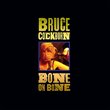

![In Falling Dark (Deluxe Edition) [IMPORT]](https://nationalbookswap.com/cd//m/78/2978/13102978.jpg)
